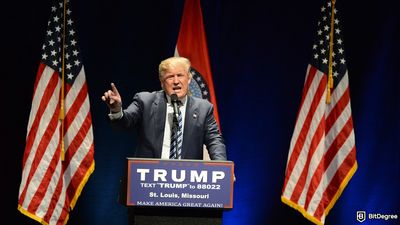KoFIU investigation revealed that no major crypto exchanges have unlawfully issued native tokens.
Korea Financial Intelligence Unit (KoFIU), a South Korean governmental agency aiming to prevent money laundering and illegal fund flow, including terrorist financing, has rolled out an investigation into crypto exchanges and the issuance of their in-house native tokens.
According to the report written by the local news portal Korea JoongAng Daily, the investigation was started in light of the FTX collapse. On November 11th, FTX filed for Chapter 11 bankruptcy due to a price crash of its native token, FTT.

Did you know?
Want to get smarter & wealthier with crypto?
Subscribe - We publish new crypto explainer videos every week!
What is an Automated Market Maker in Crypto? (Animated)


The Act on Reporting and Using Specified Financial Transaction Information in South Korea notes that crypto exchanges are not allowed to issue native tokens, and sell, exchange, or mediate “coins listed by people related to the exchange.”
Despite the law, Korea Financial Intelligence Unit seeks to explore all possibilities.
The news report highlighted that the first round of investigations revealed that crypto exchanges are obeying the law. However, the Financial Services Commission (FSC) does not rule out the possibility of extending the probe as “there are still some doubts related” to the issuance of native tokens.
One of the companies on the KoFIU radar is a Daegu-based crypto exchange, Flata Exchange. Local news portal Yonhap reported that KoFIU aims to look into the issuance of Flat, which was first listed in January 2020, and identify whether it is a native token or not.
It is worth noting that KoFIU emphasized that major South Korean crypto exchanges, like Upbit and Bithumb, haven’t issued native tokens. However, the authority highlighted that smaller crypto exchanges operating in the country are yet to be investigated.
South Korean authorities are worried about the impact FTX collapse may have on domestic investors. Local news reports revealed that around 6,000 Korean investors are holding FTT. The total amount of FTT in Korean investors’ wallets is approximately 110,000 units.
Moreover, a separate report revealed that every month, FTX welcomed around 297,229 unique South Korean users. Therefore, it is among the three countries most impacted by FTX collapse.






















